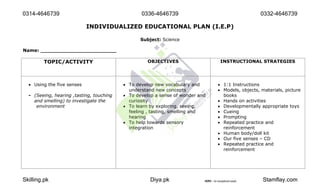Introduction:
Becoming a teacher is a journey that requires dedication, passion, and continuous growth. In this article, we’ll explore essential tips for future educators to master the art of teaching and make a positive impact in the classroom.
Developing Pedagogical Skills:
One of the first steps in mastering the art of teaching is developing strong pedagogical skills. Future educators should familiarize themselves with various teaching methods, instructional strategies, and classroom management techniques. By honing these skills, teachers can effectively engage students and facilitate meaningful learning experiences.
Understanding Student Diversity:
Every student is unique, with different backgrounds, abilities, and learning styles. Future educators must strive to understand and appreciate this diversity in their classrooms. By creating inclusive learning environments and adapting instruction to meet individual student needs, teachers can ensure that all students have the opportunity to succeed.
Building Positive Relationships:
Building positive relationships with students is essential for effective teaching and learning. Future educators should strive to establish trust, respect, and rapport with their students. By showing genuine care and interest in their students’ well-being and academic success, teachers can create a supportive and nurturing classroom community.
Effective Communication:
Effective communication is key to successful teaching. Future educators should hone their communication skills, both verbal and nonverbal, to convey information clearly and effectively. By fostering open lines of communication with students, parents, and colleagues, teachers can create a collaborative learning environment that promotes student growth and achievement.
Continuous Professional Development:
The journey to mastering the art of teaching is ongoing and requires a commitment to continuous professional development. Future educators should seek out opportunities for learning and growth, such as attending workshops, conferences, and professional development courses. By staying current with best practices and emerging trends in education, teachers can enhance their effectiveness in the classroom.
Reflective Practice:
Reflection is a powerful tool for growth and improvement in teaching. Future educators should engage in regular reflection on their teaching practice, considering what went well, what could be improved, and what changes can be made moving forward. By reflecting on their experiences and seeking feedback from students and colleagues, teachers can refine their practice and become more effective educators.
Cultivating Resilience:
Teaching can be a challenging and demanding profession, requiring resilience in the face of obstacles and setbacks. Future educators should cultivate resilience by developing coping strategies, maintaining a positive attitude, and seeking support when needed. By embracing challenges as opportunities for growth and learning, teachers can navigate the ups and downs of the profession with confidence and determination.
Embracing Innovation:
Innovation is essential in modern education, as technology and society continue to evolve. Future educators should embrace innovation in their teaching practice, exploring new technologies, teaching methods, and approaches to instruction. By embracing innovation, teachers can engage students in meaningful learning experiences and prepare them for success in an ever-changing world.
Fostering a Growth Mindset:
Finally, future educators should foster a growth mindset in themselves and their students. A growth mindset emphasizes the belief that intelligence and abilities can be developed through effort, perseverance, and learning from mistakes. By cultivating a growth mindset in the classroom, teachers can empower students to embrace challenges, take risks, and strive for continuous improvement.
Conclusion:
Mastering the art of teaching is a journey that requires dedication, passion, and ongoing growth. By developing pedagogical skills, understanding student diversity, building positive relationships, and embracing innovation, future educators can make a lasting impact in the lives of their students. With continuous professional development, reflective practice, resilience, and a growth mindset, teachers can navigate the complexities of the profession with confidence and effectiveness. Read more about tips for future teachers






